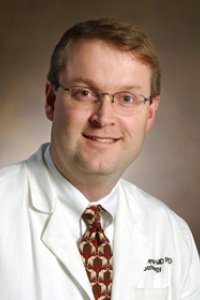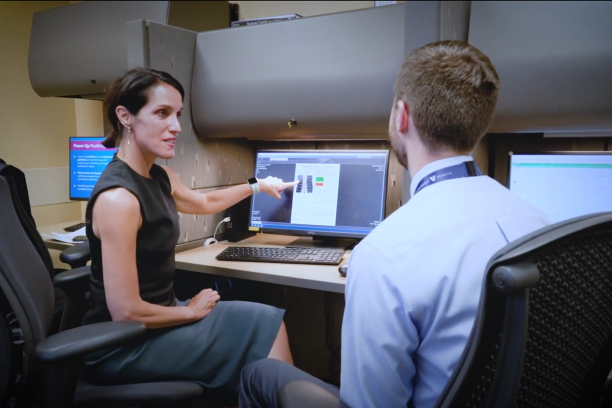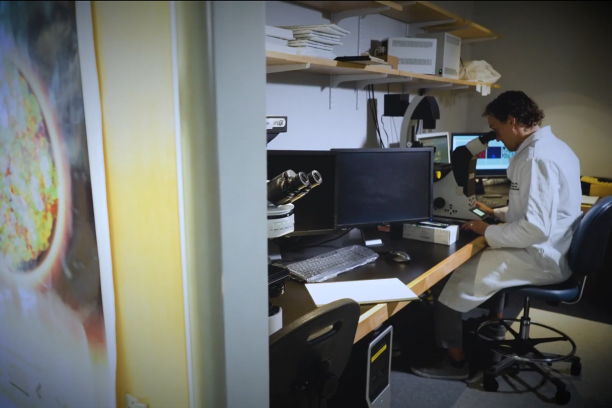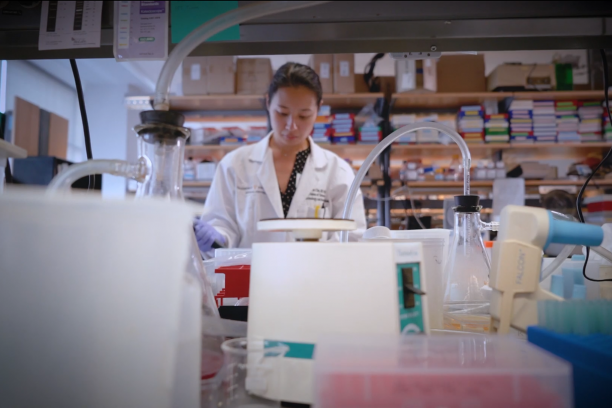The Translational Research in Endocrinology and Diabetes (TREAD) is a multi-disciplinary postdoctoral research training program integrated closely with training activities of Vanderbilt University School of Medicine and Vanderbilt Diabetes Center. Its goal is to provide postdoctoral trainees with the knowledge and skills required for independent clinical or basic science research careers. |
MD trainees are encouraged to acquire a firm foundation in the basic sciences, but also to select projects in translational or clinical research areas. PhD trainees are urged to relate their research to health-oriented problems. MD trainees usually have two or three years of residency training before entering the program, while PhD trainees have typically just received or are one year out from their doctorate. Trainees are selected on the basis of demonstrated research interests and especially on their potential as future researchers and educators. Positions are allocated approximately equally between MD and PhD trainees.
The two year training program utilizes the preceptor approach, in which the trainee develops a research project under the guidance of a faculty preceptor. Typical research topics include hormone action in humans as it relates to diabetes, intermediary metabolism, micronutrient effects on metabolic disease, metabolic regulation, molecular genetics of metabolic diseases, and translation of diabetes care delivery. In over three decades of NIH support, the program has supported more than a hundred trainees, and over seventy percent have chosen careers in academia, industry, or government.
PROGRAM OVERVIEW
This postdoctoral training program is sponsored by the Vanderbilt University School of Medicine and the Vanderbilt Diabetes Research Center. It is a mentor-based interdisciplinary program across seven medical school departments that trains both MDs and PhDs for one to two years in research broadly related to diabetes, endocrinology, metabolism, and nutrition. It has been in existence since 1973 and has been responsible for training over one hundred PhDs, MDs, and MD/PhDs, most of whom have gone on to research-related careers in academia, government, or industry. The goal of the program is to provide postdoctoral fellows with the necessary knowledge and skills to perform independent research at the faculty level upon completion of their training.
This is a mentor-based program in which training is provided in the laboratory of one or more of the approximately thirty preceptors who support this program and who are also members of the Vanderbilt VDRC. For PhDs the mentor is decided before application to the program; for MDs, the mentor may be selected before or shortly after entry into the training program. Clinical training for MDs in clinical departments can continue during their research training years, but this is limited to less than twenty percent of their time. Trainees are expected to form a mentoring committee, consisting of faculty with related research interests, in the first month of training. The role of this committee is to help guide the research of the trainee. The trainee is also expected to prepare an individual fellowship application during the first year to develop skills in grant writing.
ADDITIONAL DETAILS:
-
Adrienne Marler, DO
Research Mentor: Lea Davis, PhD
Research Description: The relationship between gender-affirming hormone therapy and lipid trends in transgender adultsMohammad Akbar, MD
Research Mentor: Justin Gregory, MD, MSCI
Research Description: Determination of latrogenic Hyperinsulinemia’s Contribution to Insulin Resistance and Endothelial Dysfunction in Type 1 DiabetesRachel Azevedo, MD
Research Mentor: Ashley Shoemaker, PhD
Research Description: Patient perceptions of genetic testing in pediatric obesity management and its impact on patient outcomes
-

Program Director
Associate Professor of Medicine, Division of Diabetes, Endocrinology & Metabolism
Associate Professor of Molecular Physiology and BiophysicsProgram Contact
Jasmyne Mitchell
Program Manager
Department of Medicine, Diab/Endo/Rheum/Imm Admin Core1161 21st Avenue South
T-3113 MCN
Nashville, TN 37232
(615) 875-9593
-
Hubaida Fuseini, PhD
Research Mentor: John Koethe, MD
Research Description: T-cells in HIV infected diabeticsC. James Poland, PhD
Research Mentor: Charles Flynn, PhD
Research Description: Bile acids control response to bariatric surgeryChristopher Wilson, PhD
Research Mentor: Dan Moore, MD, PhD
Research Description: To define the structural determinants that define IgM capable of immune regulationEllen L. McMahon, MD
Research Mentor: William Heerman, MD, MPH
Research Description: To develop alternative delivery approaches designed to improve reach, participant attendance, participant engagement, and participant satisfaction with the Competency-Based Approaches to Community Health (COACH) interventionDaniel Tilden, MD
Research Mentor: Russell Rothman, MD
Research Description: Transitions in care from pediatric to adult Type 1 diabetesKatherine Neubecker Bachmann, MD
Medical School: University of Texas Medical School at San Antonio
Residency: Massachusetts General Hospital
Research Mentor:
Research Description:Nathaniel Hart, PhD
Graduate School: University of Arizona
Research Mentor: Al Powers, MD
Research Description: Investigation of human islet and pancreas maturation in the first 10 years of life; characterization of human type 2 diabetic islet function and pancreatic tissue; dissecting the cause of Cystic Fibrosis Related Diabetes and the role of CFTR in insulin secretionDaniel Lark, PhD
Graduate School: East Carolina University, Greenville, NC
Research Mentor: David Wasserman, PhD
Research Description:Jessica Rose Wilson, MD
Medical School: Vanderbilt University
Residency: Vanderbilt University
Research Mentors: Nancy Brown, MD; Jessica Devin, MD
Research Description: Effects of Dipeptidyl Peptidase-4 (DPP4) inhibition on Neuropeptide Y (NPY) and Peptide YY (PYY) metabolism in obese patients with type 2 diabetes mellitus with and without simultaneous angiotensin-converting enzyme (ACE) inhibition
-
Strong emphasis is placed upon recruitment and selection of trainees with superior records who have expressed or demonstrated commitment to research careers. Because the program is supported by an NIH training grant, only applicants who are U.S. citizens or permanent residents can be considered. Applicant interests may be in areas of basic science, translational research, or clinical research. The program has four positions, typically split evenly between PhDs from basic science departments and MDs from clinical departments.
PhD (Non-clinical)
Application is made through the individual preceptor or department.
MD (Clinical)
For departments other than Medicine, application is made for a residency or fellowship through the department.
- Pediatric Endocrinology
- Department of Surgery
- Adult Diabetes, Endocrinology, & Metabolism
A three year program is offered that encompasses both clinical and research training designed to prepare the fellow for a career in academic endocrinology. Clinical training occurs mostly in the first year, followed by two years of research training, which may be funded by the DEP training grant. Clinical training continues at a lower level during the second and third years of research training. Clinical training is designed to prepare the fellow to sit for the boards in Diabetes, Endocrinology and Metabolism.Trainees for this program must have completed two or three years of an ACGME-accredited internal medicine training program.
Application for fellowship training is made through the ERAS, Electronic Residency Application Service of the American Association of Medical Colleges. Required for application are a CV, medical and graduate school transcripts, at least three letters of recommendation, and a personal statement. Applications are accepted in ERAS starting July 1, with match date early in December for a start date for the fellowship the following July 1, seven months later. Most adult Endocrinology programs now participate in the NRMP, National Residency Matching Program, so applicants must register in the fellowship track of this program, as well.
-
Research training is offered across a variety of disciplines and disease-oriented fields. These include hormone action in humans as it relates to diabetes, animal models of disease, islet biology, intermediary metabolism, micronutrient effects on metabolic disease, metabolic regulation, molecular genetics of metabolic diseases, clinical research in diabetes and obesity, and translation of diabetes care delivery. Research projects are designed by the trainee and preceptor. Many of the training faculty in the basic sciences have projects that translate directly to human biology or disease, and many preceptors in clinical departments have research programs that are firmly rooted in the basic sciences. Collaborative projects with researchers in the basic science departments are arranged if they can provide the trainee with new skills necessary for their main project.
-
All trainees are encouraged to consider alternate degree programs as part of their training, such as study leading to the Master in Public Health or Master in Clinical Science Investigation offered at Vanderbilt. The program is also enriched by the presence of numerous core facilities at Vanderbilt and under the VDRC. These include the Vanderbilt Clinical Research Center, where both inpatient and outpatient research may be performed, and VDRC-supported cores, which provide metabolic assays, develop knockout or transgenic mice, and assist with complex metabolic phenotyping of research animals. Mandatory training is also provided in the ethical conduct of research, biohazards and safety. Finally, the program is enriched by the activities of the Vanderbilt Diabetes Center, which include a weekly research speaker program and an annual Diabetes Day symposium where trainees present their work.


